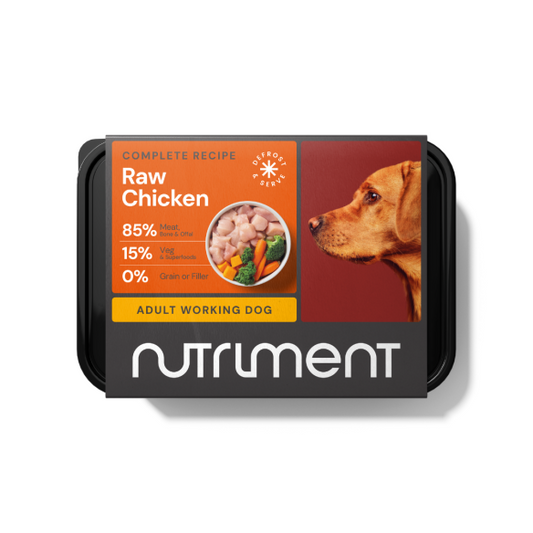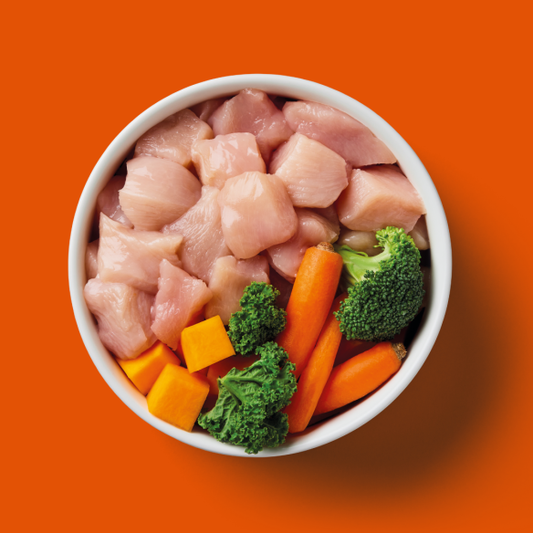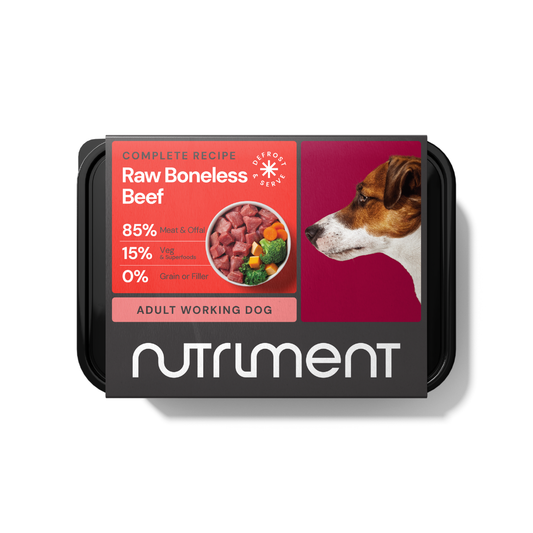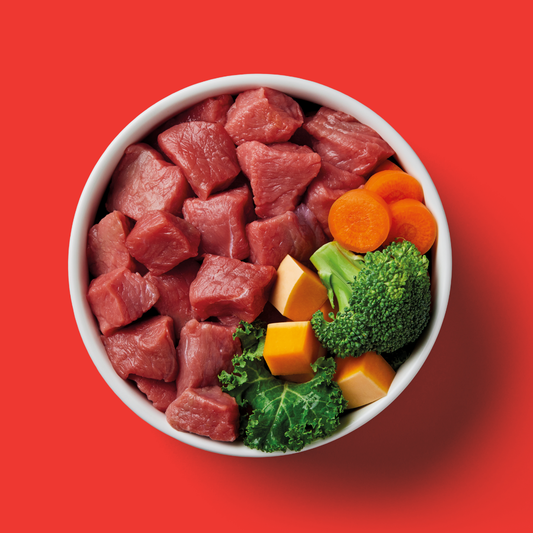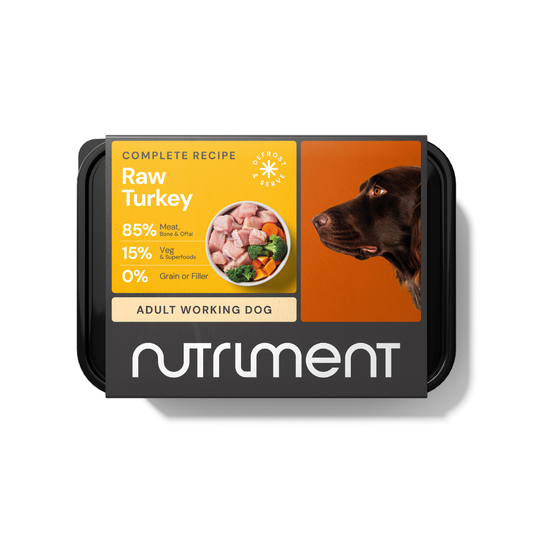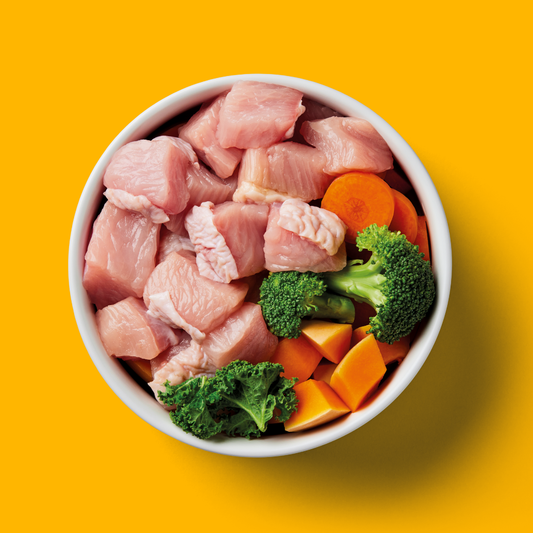
At Nutriment, we know importance of including biologically appropriate fruits and vegetables into your dog’s diet. That’s why every one of our core complete recipes contains 15% vegetables and superfoods to ensure that your dogs are getting all the nutrition they need so dinnertime is as easy as defrost, dish, delight!

Do dogs need vegetables and fruits in their diet?
Absolutely! Dogs are omnivores and need vegetables and fruits in their diet to ensure they are getting all the necessary nutrients to thrive.
- Vegetables and fruits contain essential nutrients (Vitamin A, Vitamin C, Potassium, Magnesium and Folate) that they can’t get from meat alone.
- Fibre is key to promoting good gut health and digestion. It’s also key in balancing blood sugar and reducing inflammation in the gut.
- There are natural compounds in vegetables and fruits that can help reduce disease risk, prevent cancer and support brain health. Broccoli is well known for it’s cancer fighting abilities!
- Vegetables and fruits can help support overall brain health, eye function and joint health.
Eating seasonal fruits and vegetables is not only beneficial for dogs but also boosts the flavour of the food their eating for a more exciting mealtime. It’s important to remember that whilst dogs need to have vegetables and fruits in their diet, that these should be fed in moderation, unseasoned and with the seeds or stones removed.
Seasonal fruits and vegetables for your dog: a guide
January
- Brussel Sprouts
- Carrots
- Cauliflower
- Kale
- Parsnips
- Savoy Cabbage
- Swedes
February
- Brussel Sprouts
- Cauliflower
- Kale
- Parsnips
- Purple Sprouting Broccoli
- Savoy Cabbage
March
- Cauliflower
- Kale
- Purple Sprouting Broccoli
- Savoy Cabbage
April
- Asparagus
- Purple sprouting broccoli
- Spring cabbage
May
- Asparagus
- Lettuces
- Radishes
- Spinach
- Spring cabbages
June
- Baby carrots
- Chard
- Courgettes and summer squash
- Lettuce
- Radishes
- Raspberries
- Rocket
- Spinach
- Spring cabbage
- Strawberries
July
- Beetroot
- Blueberries
- Cabbage
- Carrots
- Courgettes and summer squash
- Cucumbers
- Fennel
- French beans
- Lettuce and other salad leaves
- Peaches
- Peas and mangetout
- Raspberries
- Runner beans (cooked)
- Spinach
- Strawberries
- Tomatoes (ripe)
August
- Aubergines
- Beetroot
- Blackberries
- Blueberries
- Broccoli
- Cabbage
- Cauliflower
- Carrots
- Celery
- Chard
- Courgettes and summer squash
- Cucumbers
- Fennel
- French beans
- Lettuce and other salad leaves
- Peas and mangetout
- Peppers
- Peaches
- Raspberries
- Runner beans (cooked)
- Sweetcorn
- Tomatoes (ripe)
September
- Apples
- Autumn-fruiting raspberries
- Beetroot
- Blueberries
- Broccoli
- Cabbage
- Cauliflower
- Carrots
- Celery
- Chard
- Courgettes and summer squash
- Cucumbers
- Fennel
- French beans
- Lettuce and other salad leaves
- Pears
- Peppers
- Runner beans (cooked)
- Spinach
- Sweetcorn
- Tomatoes (ripe)
October
- Apples
- Beetroot
- Broccoli
- Cabbage
- Carrots
- Cauliflower
- Celeriac
- Celery
- Chard
- Jerusalem artichokes
- Kale
- Marrow
- Pak choi
- Parsnips
- Pears
- Rocket
- Spinach
- Swede and turnip
- Winter squash and pumpkins
November
- Apples
- Carrots
- Cabbages
- Cauliflower
- Kale
- Parsnips
- Pears
December
- Brussel sprouts
- Carrots
- Cauliflower
- Kale
- Savoy cabbage
